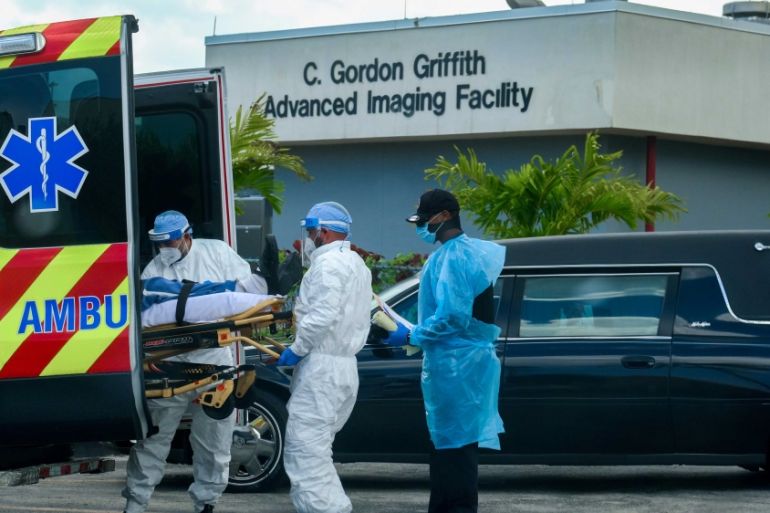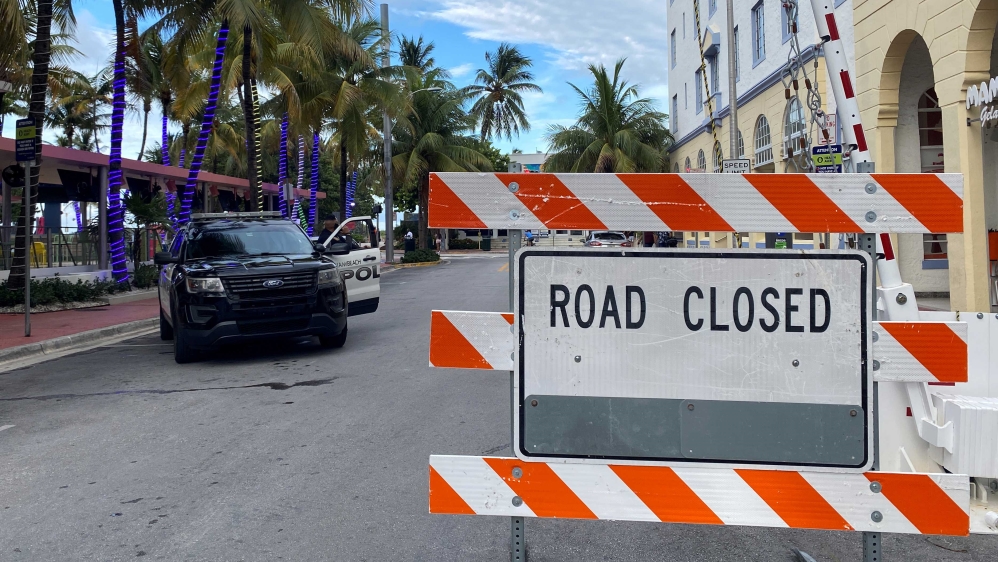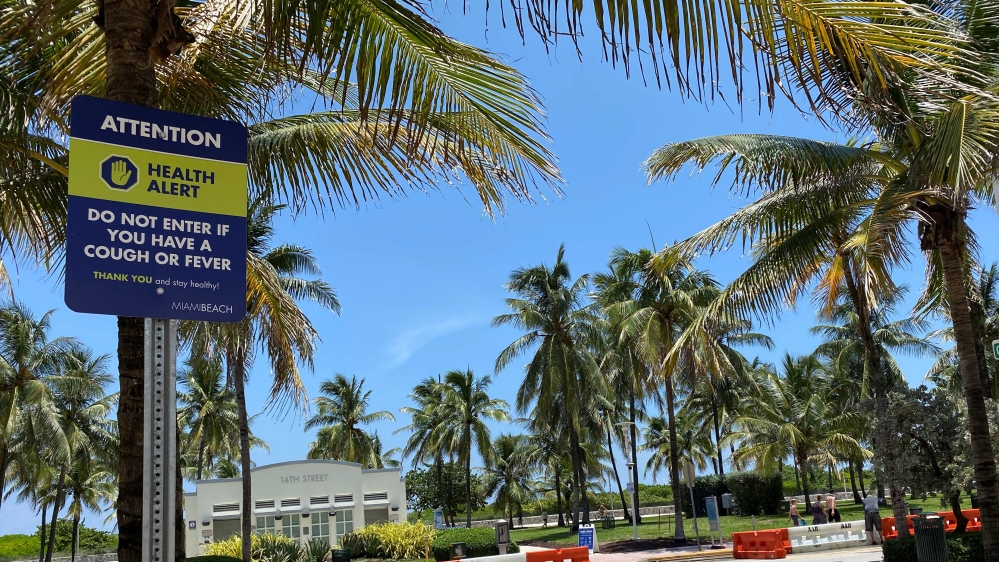Miami medical teams helpless as COVID-19 ravages South Florida
After seeing 10,000 cases a day in July, those on the front lines in Florida are frustrated with inadequate response.

As the coronavirus ravages Florida, healthcare workers in Miami hospitals are struggling to cope with the emotional and physical impact of treating a crushing wave of COVID-19 patients.
After seeing 10,000 new cases a day become the norm across the state in July, many of those on the front lines are frustrated with the apparent inability of local, state, and federal governments to coordinate an adequate response. They are equally aghast with what appears to be the reluctance or refusal of many Floridians to honour safety precautions to stop the spread of coronavirus.
Keep reading
list of 4 itemsAslan, a little Syrian boy’s journey to hear again
The inexplicable rise of kidney disease in Sri Lanka’s farming communities
Europe endured record number of ‘extreme heat stress’ days in 2023
“I know, and my colleagues know, that we’re putting a Band-Aid on a problem, we’re supporting people as best we can to get them through, but the real fight happens outside,” said Dr Eric Knott, a pulmonary and critical care fellow working in three of Miami’s largest hospitals. “If you can’t stop the spread, all of my work is for nothing.”
For Miami doctors, concerns about the virus far surpass those stirred up by even the largest hurricanes.
“A hurricane tends to be a sort of finite amount, and this is infinite,” said Dr Mark Supino, an attending physician in Jackson Memorial Hospital’s emergency department.

Many healthcare workers and union leaders were critical of Miami’s reopening several weeks after the number of cases of the novel coronavirus first began rising in early March.
State health officials reported a total of 432,747 cases across Florida, with 77 new deaths bringing the total to more than 5,900 as of Sunday night.
While the death toll in South Florida has not approached that of New York City, an early epicentre of the US outbreak, hospital beds and intensive care units across the region have filled to capacity, and in some cases surpassed it.
At Jackson Memorial Hospital, the largest facility in the region, officials have called in hundreds of additional medical workers as employees have fallen sick and had to stay home or be hospitalised. An auditorium was sealed and prepared for COVID-positive patients with a negative pressure system to limit the airflow to prevent new infections.
“In 10 years of medicine, I never had to put another nurse on life support; I never had to worry about my co-workers dying,” said Kevin Cho Tipton, a critical care nurse practitioner who works at one of Miami’s largest public hospitals. “It’s been emotionally very challenging, physically very challenging.”
Among the most difficult and stressful parts of the job are the sheer number of ICU patients.

Healthcare workers must constantly keep tabs on the vital organs of patients on ventilators, and many of the sick have to be flipped over and over again to stave off any complications from lying in one position for a prolonged period. To do so without risking detaching any of the life support systems can take up to six people.
The intensity has overwhelmed some.
Jude Derisme, vice president of Service Employees International Union 1199, which represents 25,000 medical workers across Florida, said the union had to help get one nurse, a 25-year veteran, off a hospital floor after a “breakdown”.
“My fear is that if we don’t find a way to bring these numbers down over the next two weeks, if they’re worse than these last two weeks, we’re going to be stretched too thin,” said Martha Baker, a registered nurse and president of Service Employees International Union 1991, which represents about 5,600 medical professionals within Miami’s Jackson Health System. “The sad news is that that’s when patients die.”
While her chapter of the union, along with others across Florida, has advocated for more personal protective equipment, better overtime pay, hazard pay, and worker’s compensation for those waylaid by the virus, they also acknowledged that medical workers could only do so much against the pandemic.
“This is war, and instead of bullets we’ve got viruses,” Baker said. “If we don’t find a way to dampen our curve, we just keep chasing our tails.”